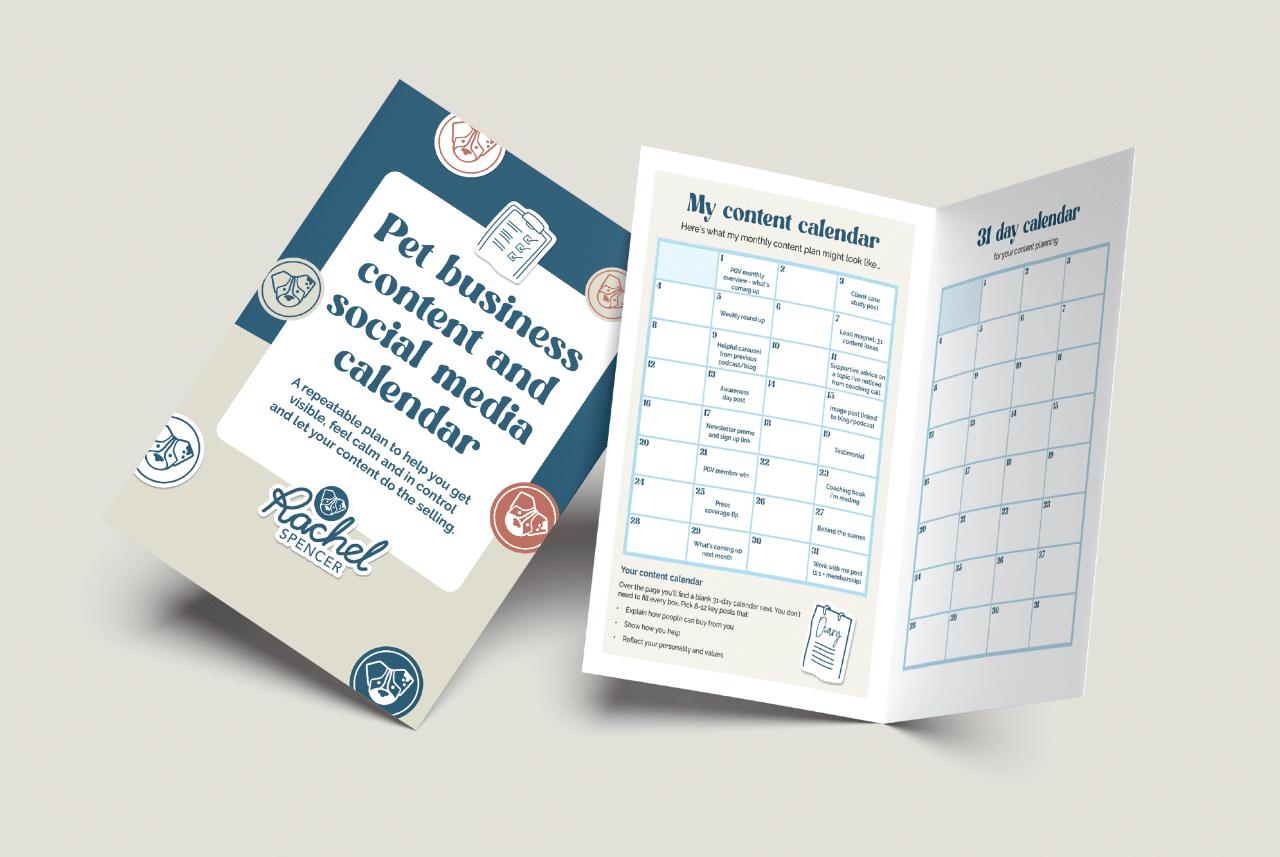Have you ever thought about running a free challenge so you can connect with more people in your business?
Running challenges has got really popular over the last few years, ranging from fitness ones to dog training to learning skills to help your business.
It’s likely that you will have joined in at least a few – definitely during lockdown when there were so many happening.
And if you’re thinking of running one yourself, you might wonder what’s involved.
In this episode I’m going to run through seven things to consider when you’re putting on a challenge.
You can tune in on the player link below or carry on reading as a blog post.
Why run a challenge?
Your challenge should be leading people to a paid for product or package. Mine is to promote my group coaching programme.
This is a year long programme where you can learn everything you need to know when it comes to generating publicity for your business.
If people come and do the challenge, and complete all the tasks, it’s most likely they will learn lots of new ways to promote themselves and get some coverage.
But I don’t expect them to join the programme. It’s there if they want the additional ongoing support, the ideas to promote their business and the community.
Do your research
First, if you’re thinking of putting on a free challenge, go and take part in some really good challenges before you do anything.
The first challenge I did was Get Leads from LinkedIn with Helen Pritchard and it blew me away and that’s what gave me the push to do my first one in September 2019.
Vicki Jakes from Supercharge Your Website does a brilliant challenge and marketing expert Janet Murray too.
Depending on what you do in your business, I would definitely go and look at someone in a similar industry to you and see how they do it.
This is research though, you don’t copy them.
Get some expert advice
There is an amazing guy, Phil Harrison who does a five day challenge on how to put on a five day challenge – how meta is that?
In it he gives you the framework to put on your own challenge with scripts, daily prompts, advice on your videos – he does it all for you.
Running a challenge is a lot of work so don’t go in blind. I have done Phil’s challenge twice and took away new things each time.
Another thing I did ahead of my last challenge was have a power hour with Vicki Jakes who gave me advice on some tweaks I needed to make in mine.
It was money very well spent, so if you have opportunity to do the same, definitely invest in picking the brains of someone who will put you on the right path.
Don’t overwhelm yourself at first
You might see figures from people who have run challenges where they’ve brought in hundreds or thousands of people and made loads of money.
This can be dazzling – but my advice is NOT to try to aim for this. Start small and learn as you go.
Having huge numbers in will stress you out and you’re more likely to have a bad experience which will put you off than if you start small.
If you have an audience of people who like you and what you do, make them part of it. Explain it’s new, you’re learning, you’d love their support and they will get behind you.
Be prepared
Get your videos and e mails ready at least the week before. You want to be able to focus on the group and not be chasing your tail.
Have the live at the same time every day so people know when to come to the group with their questions, and send out an e mail ahead of the live.
I use Streamyard as this is more stable than Facebook live and generates captions, and it’s free which is just amazing!
If you can, avoid any other big commitments that week, or get ahead with your other deadlines.
For example, I will have my blog post and podcast scheduled way ahead of time on my challenge week and I’m not as present in my free Facebook group.
The members know this is because I put a lot into my challenge and lots of them join in and support it.
Also, put captions on your videos if they’re not too long. Mine are usually under five minutes, and I order these from rev.com and use Kapwing to add them to the video.
Then, if people can’t listen, they can still see what the task is for the day.
Bring in the cheerleaders
Do you have some clients or friends who will come in and support you?
It can be lonely and scary, especially at first. I worry that people won’t come to the lives or that I will fluff up the whole thing.
So last time on Vicki’s advice, I asked a few clients if they would support me and made a donation to their chosen charity to thank them.
Also, get people to join as their profile rather than their page as that way you know their names and it’s more personal.
It’s also easier for them to find the group from the e mail link too.
Have some prizes
Who doesn’t love a prize? For each challenge I’ve given away goodies and these have ranged from diaries and notepads to a month in my membership and one to one call.
It makes it fun and creates a buzz in the group. It doesn’t have to be mega fancy or expensive, and it’s a good way to thank people for being involved.
Show up and give your all with no expectation of anything in return
You want people to go away from your challenge having had a great experience and for them to be able to implement what they learned.
For mine, it’s to get media coverage or publicity on a blog or vlog. Some people join and feel really wary of putting themselves out there.
Or they may struggle to think of a story idea. By the end they have all they need, so ideas of places to approach, a story idea, a pitch and off they go.
It’s brilliant because in the weeks that follow, I get messages and posts in my Facebook group where they show off the coverage they achieved.
I’m really chuffed, so are they, and they will tell their friends about it.
If people want more personalised support, then they can come and join my coaching programme.
But there is no pressure to do this at all and as long as you go in with this attitude, you will create a great experience for your group.
So if you’re thinking of doing a challenge, or you’ve done one and you’ve listened in or read this post to pick up some pointers I hope that’s been helpful.
Do get expert advice, be organised, and try to give as amazing an experience as you can.
Even if the results aren’t what you hoped for, your next challenge will be different, so keep trying and keep learning.
And if you’d like to be first to know when I’m running challenges, sign up for my newsletter here.
Links mentioned in this post
How to run a challenge challenge with Phil Harrison
Join Phil’s challenge here.
Get leads from LinkedIn with Helen Pritchard
Supercharge Your Website Vicki Jakes
Courageous Content Janet Murray





